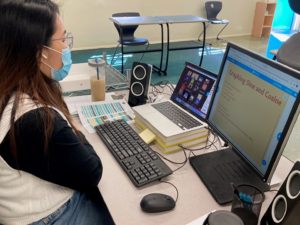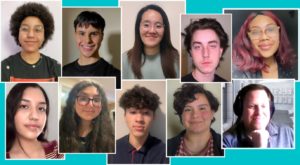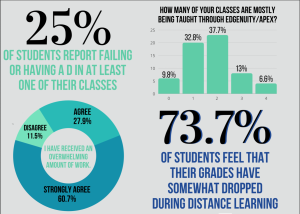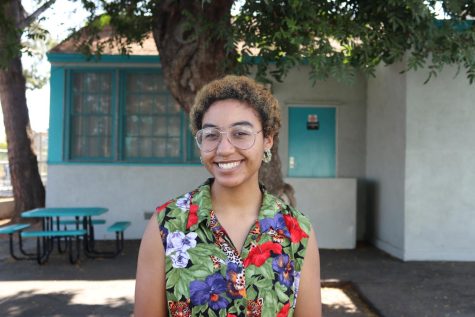Lack of social interaction negatively impacts students in quarantine
May 4, 2021
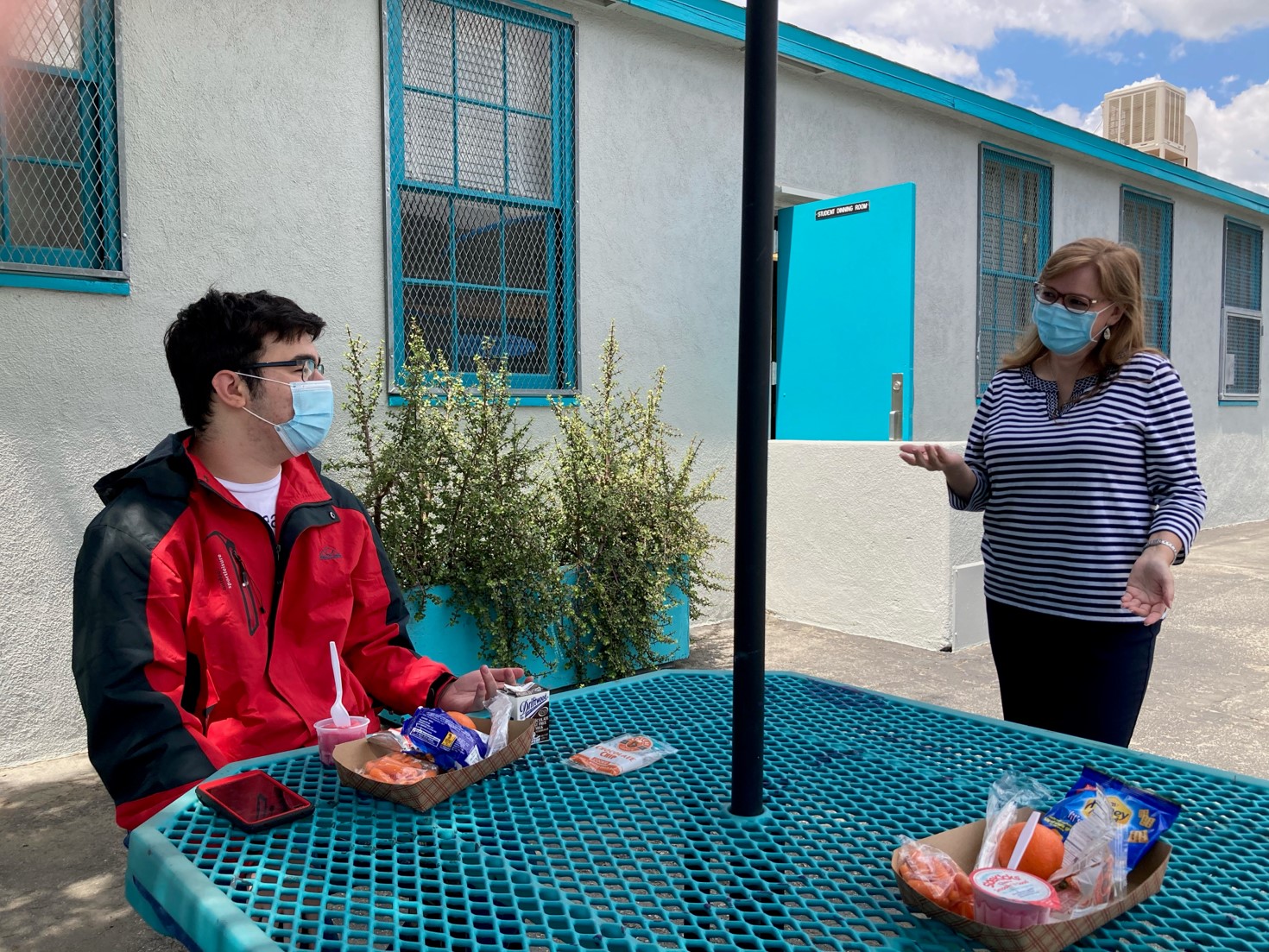
After a year of distance learning, many difficulties have begun rising to the surface. Students like junior Gabriela Jeronimo have experienced the negative impacts of the lack of social interaction during distance learning.
“(The lack of social interaction) has affected me because I haven’t seen some of my friends ever since (quarantine) started and I also haven’t been able to see some of my family members,” Jeronimo said.
The Los Angeles Unified School District announced on March 13, 2020, that schools would be closed for two weeks due to the COVID-19 pandemic. Although some students were hoping to make plans with friends during that closure, Governor Gavin Newson issued a statewide stay-at-home order, making that impossible. From this point forward, students’ plans got canceled and began to notice how they are missing out on social interaction.
“Maybe if we go back (to school) it could help a little bit with the lack of social interaction but I don’t think so because we are not going to really be doing many things, since we are going to stay in homeroom,” sophomore Diego Nuño said.
Since the pandemic began over a year ago, many people have felt an increased amount of loneliness. All the safety requirements that were put into place have only intensified student’s feelings of isolation. People have to stay six feet apart and gatherings outside of your household are also not recommended. When you stay at home for a long period of time, you begin to feel moody and some might even notice an increase in anxiety and depression from staying home for a long time.
“There has been an increase nationally of kids that are expressing suicidal ideation and I think that is partly because of the social isolation,” psychiatric social worker Joanne Tuell said. “The important thing is to be aware of how you are feeling and to practice good coping strategies.”
Tuell personally visited each advisory period and had workshops set up for students, such as Erika’s Lighthouse. Adding the extra advisory period was a way to help enhance social-emotional learning. But for some of the introverted students who attend Daniel Pearl Magnet High School, they haven’t noticed much of a difference in their mental health. In fact, some students even prefer staying at home because they can do school work and talk to their friends from the comfort of their home.
“Well the lack of social interaction has not really affected me so much since I’m not really a social person, to begin with,” Nuño said.
Students communicate with their friends through other social media platforms, making their average screen time also increase. Students stare at a screen for an average of four to five hours just to log into their online classes. In a study conducted by Morning Consult in August, parents have said their children have been spending more than four hours on their electronic devices. Some of the side effects from staring at a screen for a long period of time include having headaches, dry eyes and vision problems.
“In terms of turning off the technology, I think ways that kids can appropriately social distance is like going on a walk with their friend, wearing a mask and being outdoors, having a picnic outside, or meeting at the park and staying six feet apart, or meeting at somebody’s backyard and sitting six feet apart. I think these are acceptable and safe ways to see your friends,” Tuell said.
Staying at home can lead to many negative effects. Some students have noticed an increase in anxiety or even depression. Since people are lacking the ability to talk with other people, hang out with friends after school, they will begin to feel more socially vulnerable. Depression can manifest in many ways, some might need to rely on others to help whereas others simply need to focus on themselves and their goals. For some students, they will begin to find ways to help themselves grow during these hard times.
“The only positive thing that I have noticed come out of it was reading more books and probably trying to focus on myself,” Jeronimo said.
Tuell’s Google Voice number is 818-925-8062, and students can reach her through Schoology if they need help and support. Students can also text 741-741 to reach the Crisis Text Line, as well as call 1-800-273-8255 for the National Suicide Prevention Lifeline.
“We’ve been saying all along, all year long, it’s okay to ask for help, it’s fine,” Tuell said. “We encourage people to ask for help, and if not with me, then I have resources for other places that people can go to get help.” Tuell said.


